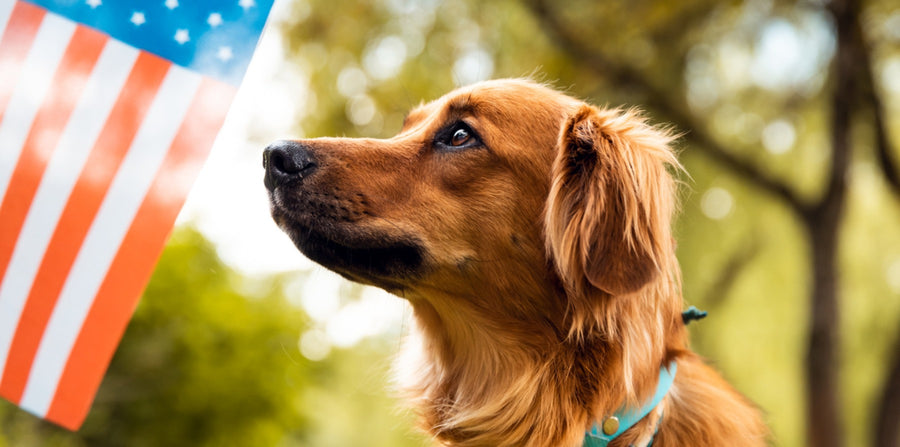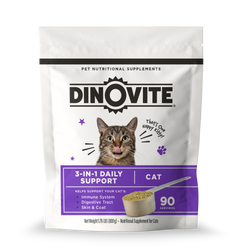Tips to Survive the Fourth of July with Your Pet

How to Keep Your Dog Calm on July 4th: Dog Calming Tips
Fireworks, parades, family gatherings. People love celebrating on July 4. Most pets do not. Cats are nowhere near as disturbed by the activities and most will simply find a quiet place to weather the festivities. Unfortunately, many dogs have such a negative reaction to most activities associated with Independence Day that it's important to plan ahead to make this day as uneventful as possible for your pup.
Understanding that the activity, commotion and noise are a problem is the first step to alleviating the stress and anxiety for your pet. So, leaving them home, in a safe space, instead of taking them to large gatherings may be a great solution.
Of course, the loud, unpredictable sounds of fireworks that traditionally grace our nation's birthday cause the most issues with our canine companions.
Studies show that more dogs run away in July than any other month. This does not specifically point to July 4, however we have all heard the stories of the scared pup who decides to bolt when faced with a sky full of loud and flashing fireworks.
Watch for Signs that Your Pet is Stressed
Shivering, shaking, panting and trying to hide are symptoms of stress. Even yawning and drooling can indicate anxiety. Frightened dogs may also lick their jowls repeatedly.
“In addition to displaying fearful behavior, some dogs also cling to their owners, destroy property, soil the house or injure themselves when they hear a noise that upsets them. Frantic attempts to escape may cause dogs to chew, scratch, dig and even jump out of windows.’’ Pia Silvani, director of behavior rehabilitation at the ASPCA
Some dogs have extreme reactions to the activities associated with the Fourth of July – fireworks, parades, parties.
It's pretty easy to keep them away from the parades and parties, but it seems like fireworks are everywhere. There are some ways to keep your pet safe and calm and to keep the anxiety to a minimum.
.webp)
Audio Distraction
Your dog's sense of hearing is many times sharper than yours, so fireworks that seem distant to you, can still bring on anxiety in them. Music can block out the some of the offending sounds. Classical music is soothing for humans and canines and reggae with a distinct beat can disguise the booming sounds of fireworks as well. Playing music all day or even a couple days prior can set the stage for your dog.
Some dogs are startled by the noise, so keeping them indoors, closing blinds and turning on music, TV or even an audio book with a soothing human voice can give a dog comfort.
Exercise and Happy Exhaustion
A tired pup is a content pup. Before the festivities begin, get outside with your dog and play, play, play. If your dog is a pool pup, grab those floating toys and have yourselves a pool party! Are you a walker or jogger, take your dog with you. Get your dog content and sleepy before those pesky fireworks start. This will make it all the easier for them to relax and possibly sleep through the evenings noises.
Don't Forget Updated ID
Don't forget the collar and easy to read ID tag that includes owner's phone number. If a pup gets disoriented and scared, there's no telling how far he may wander. Assuring your dog has this info on him will better your chances of being reunited.
Compression Clothing or Medication
Things like compressions shirts can come in handy during times of stress for many dogs. Of course, these items should never be used unless you are able to be with your dog. And your vet can provide things like SILIO, the first FDA approved anxiety and fear treatment associated with noise aversion.
Note: The author of this article has never tried either of these and cannot personally endorse these.
Above all else, make a plan. This is the worst day of the year for many pets, as anxiety and fear run rampant. You know your pet best so put things in place before the holiday to make it a better day for them.
*All information on this website is for educational purposes only and is not intended to replace the expert advice of a veterinarian or veterinary practitioner.
Related Products



